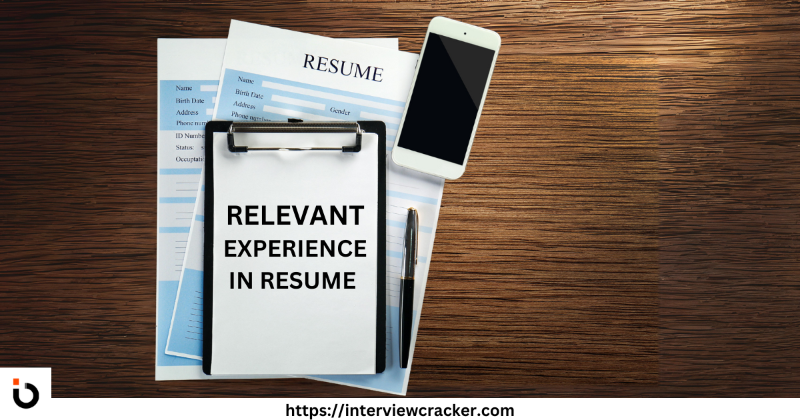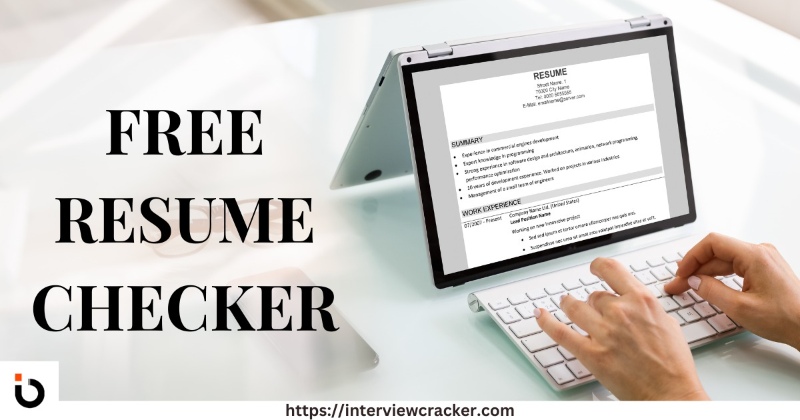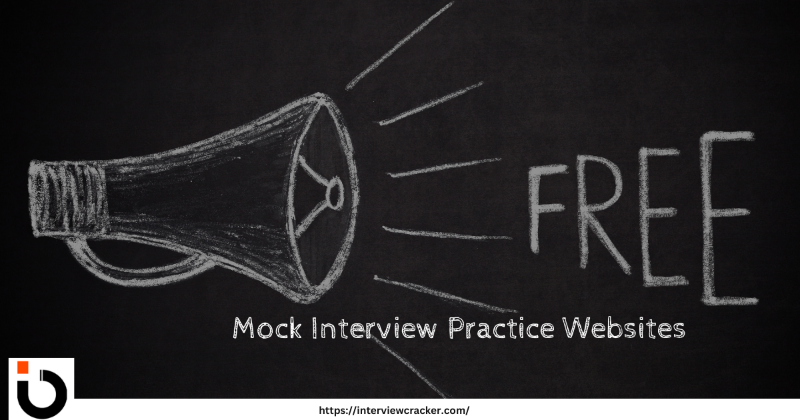In the competitive landscape of contemporary employment, the concept of relevant year of experience stands as a pivotal criterion in the evaluation of potential candidates.
In this comprehensive exploration, we delve into the nuanced dimensions of what constitutes relevant experience, elucidate its significance, and provide pragmatic tips for optimizing its presentation on resumes and in job applications.
Table of Contents
ToggleWhat is Relevant Experience?
The term “relevant experience” means a candidate’s professional background and achievements that directly align with the prerequisites of a given role.
It transcends mere job titles, emphasizing the application of skills, knowledge, and accomplishments pertinent to the targeted position. To comprehend its essence, one must discern the fundamental components that contribute to its substance.
What experiences can you consider relevant?
Here are examples of experiences that can be considered relevant for a job application:
Experience Type | Examples |
|---|---|
Previous Job Roles | Positions with responsibilities similar to the target role. |
Internships | Hands-on opportunities in the same or related field. |
Volunteer Work | Relevant projects showcasing leadership, teamwork, or problem-solving skills. |
Academic Projects | Research, case studies, or assignments aligned with industry requirements. |
Certifications and Training | Specialized programs demonstrating expertise in specific tools, methods, or techniques. |
Freelance Work | Independent projects with deliverables matching the job description. |
Leadership Positions | Roles like team captain, club president, or project lead showcasing management abilities. |
Soft Skills Demonstrations | Examples of effective communication, collaboration, or adaptability in past roles. |
Technical Skills | Proficiency in industry-specific tools, software, or processes relevant to the role. |
Achievements | Quantifiable outcomes like increased revenue, improved efficiency, or successful projects. |
Tip: The key is to ensure that the experience is directly relevant to the position or role you are seeking.
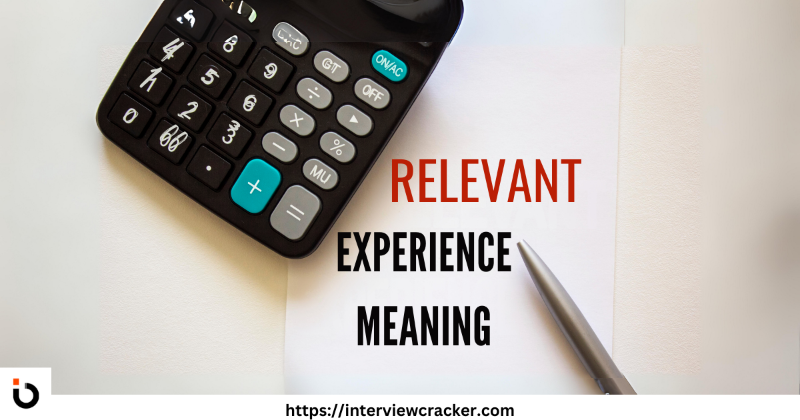
Discerning Components of Relevant Experience:
Skill Alignment:
Relevant experience hinges on the congruence between the skills acquired in previous roles and those demanded by the prospective position.
Identification of key competencies such as technical proficiencies, project management, or interpersonal skills is imperative.
Achievement Orientation:
A crucial facet of relevant experience lies in the capacity to demonstrate tangible accomplishments in previous roles.
Quantifiable achievements, be they in the form of increased efficiency, revenue generation, or successful project completion, enhance the relevance of a candidate’s professional background.
Adaptability and Transferable Skills:
Particularly pertinent for career transitions, the ability to showcase transferable skills underscores the adaptability of a candidate.
Emphasis on universal skills like effective communication, problem-solving, and critical thinking can bridge gaps in direct experience.
10 Tips to Showcase Relevant Experience on a Resume Effectively
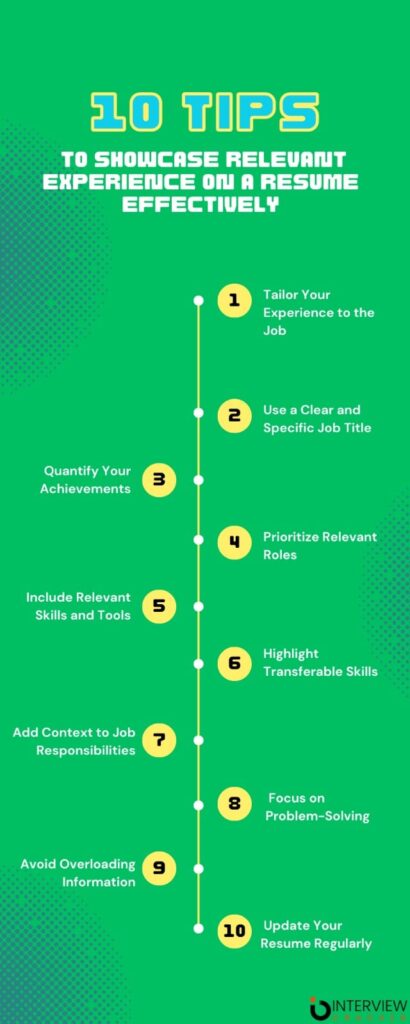
Here are tips for showcasing relevant experience on a resume effectively:
1. Tailor Your Experience to the Job
- Customize your resume for each application by focusing on roles, skills, and achievements that align with the job description.
- Highlight keywords from the job listing to ensure relevance.
2. Use a Clear and Specific Job Title
- If your previous job title doesn’t clearly reflect your role, adjust it slightly (without misrepresentation) to match industry-standard terms.
- Example: Use “Marketing Specialist” instead of “Marketing Ninja” if the latter was your official title.
3. Quantify Your Achievements
- Include numbers and results to demonstrate impact.
- Example: “Increased sales by 25% through targeted email campaigns” or “Managed a $500,000 annual marketing budget.”
4. Prioritize Relevant Roles
- Place the most relevant positions at the top of your experience section, regardless of the chronological order. Use a “Functional Resume” format if necessary.
5. Include Relevant Skills and Tools
- Mention specific tools, technologies, or methodologies used in your previous roles that match the job requirements.
- Example: “Proficient in SEO tools like SEMrush and Google Analytics.”
6. Highlight Transferable Skills
- Even if your experience isn’t directly related, showcase skills that are applicable to the new role, such as teamwork, leadership, or analytical abilities.
7. Add Context to Job Responsibilities
- Briefly describe the scope of your role and how it contributed to the company’s goals.
- Example: “Led a team of 10 to execute nationwide marketing campaigns for a Fortune 500 company.”
8. Focus on Problem-Solving
- Share examples of challenges you faced, actions you took, and results you achieved.
- Example: “Resolved operational inefficiencies, reducing processing time by 20%.”
9. Avoid Overloading Information
- Keep it concise by focusing on achievements over day-to-day responsibilities.
- Use bullet points to maintain clarity and readability.
10. Update Your Resume Regularly
- Regular updates ensure your resume includes the most relevant and recent experiences, keeping it job-ready.
By tailoring your resume and emphasizing accomplishments, you can present yourself as the ideal candidate for the position.
How does one handle a career transition in the context of relevant experience?
In cases of career transitions, where direct experience may be lacking, the focus should shift towards highlighting transferable skills. Emphasizing the parallels between prior roles and the new career path can effectively communicate the candidate’s suitability for the position.
Strategies for Tailoring Resumes and Cover Letters:
Precision Over Expanse:
The cardinal rule in presenting relevant experience is precision. A resume is not an exhaustive autobiography but a targeted document highlighting the most pertinent aspects of one’s professional journey.
Strategic Selection:
Tailoring the resume involves the strategic selection of experiences that directly correlate with the job description. Irrelevant roles or those lacking in demonstrable achievements should be omitted.
Cover Letters as Narratives:
The cover letter serves as a narrative complementing the resume. It provides an opportunity to weave a cohesive story of one’s professional journey, connecting the dots between past experiences and the requirements of the targeted role.
Difference Between Total Experience and Relevant Experience
Total experience refers to the overall duration of a person’s entire career, encompassing all roles and positions held, regardless of their direct relevance to the current job. It provides a comprehensive overview of the individual’s career journey, showcasing the diversity of roles undertaken over the years.
On the other hand, relevant experience specifically focuses on the work history and skills directly applicable to the requirements of the current job or industry. It emphasizes quality over quantity, tailoring the resume to highlight experiences that align closely with the specific job description and qualifications sought by the employer.
While total experience offers a holistic view, relevant experience is crucial for demonstrating the ability to excel in a targeted role, providing a more focused and tailored perspective for job applications and interviews.
Conclusion
Understanding and improving relevant experience in your career is key for people navigating their career paths. This blog has underscored the importance of aligning one’s work history with the specific requirements of a desired role.
It is not merely about the total years of work but the strategic curation of experiences that directly contribute to success in a given position. The ability to effectively communicate and tailor one’s relevant experience not only enhances job prospects but also reflects an individual’s adaptability and understanding of industry needs. In a competitive job market, mastering the art of showcasing relevant experience is a key step towards unlocking new opportunities and advancing in one’s professional journey.
Frequently Asked Questions
How do you answer: What is your relevant experience?
To answer this question:
- Identify Relevant Roles: Focus on positions, projects, or tasks that align with the job you’re applying for.
- Example: “In my previous role as a marketing associate, I managed social media campaigns that increased brand engagement by 25%.”
- Highlight Skills: Emphasize skills you gained that match the job description.
- Example: “I developed strong analytical and project management skills, which I believe are crucial for this role.”
- Quantify Achievements: Use measurable results to demonstrate your contributions.
- Example: “I successfully led a team that closed deals worth $1 million annually.”
What counts as relevant experience?
Relevant experience includes any work or activity that demonstrates skills or knowledge applicable to the job. Examples include:
- Previous roles with similar responsibilities.
- Internships in the same or related field.
- Freelance work that matches the job requirements.
- Academic projects or research in the same industry.
- Volunteer work showcasing transferable skills like teamwork or leadership.
How do you say you have relevant experience?
When stating you have relevant experience:
- Be Direct: Start with a clear statement. Example: “My background in [specific field] aligns closely with the requirements of this role.”
- Cite Examples: Provide evidence of your experience. Example: “In my last job, I managed a team of five and successfully launched three major projects within six months.”
- Connect to Job: Link your experience to how it will benefit the organization. Example: “This experience has prepared me to excel in [specific role], as I already have a proven track record of delivering results.”
Can volunteering be considered relevant experience?
Volunteering, when strategically presented, indeed constitutes relevant experience. For instance, if the volunteer engagement involved responsibilities akin to the targeted role, such as event planning or project management, it becomes a pertinent inclusion.
Can soft skills be positioned as relevant experience?
Soft skills, often underestimated, can significantly enhance the relevance of a candidate. For instance, if the job demands effective communication, instances of successful collaboration or conflict resolution should be articulated, emphasizing the applicability of these soft skills.
Can Networking be considered as Relevant Experience?
Networking, when approached strategically, extends beyond superficial connections. Collaborative projects or professional alliances formed through networking can be integrated into the narrative of relevant experience, illustrating practical applications of skills and competencies.
How do online courses and certifications contribute to relevant experience?
Online courses and certifications, when directly aligned with the job requirements, validate a candidate’s commitment to continuous learning. However, it is essential to position them as supplementary to practical experience rather than a standalone qualification.
Is there a permissible degree of embellishment to enhance the perceived relevance of experience?
While a certain level of strategic presentation is encouraged, ethical boundaries must be maintained. Factual accuracy should be prioritized, avoiding any exaggeration or misrepresentation that could compromise professional integrity.
How should one address a career gap in relevant experience?
Acknowledging and addressing career gaps is pivotal in maintaining transparency. Rather than evading the issue, candidates should articulate the skills gained during the hiatus, any freelance or project-based work undertaken, and how these experiences contribute to their readiness for the prospective role.
How can one tailor a resume to emphasize relevant years of experience?
The optimization of a resume for relevance involves meticulous selection and presentation of professional experiences. This necessitates aligning past roles with the requirements of the desired position and emphasizing accomplishments and skills germane to the prospective job.
By structuring your answers around these points, you can confidently demonstrate your fit for the role.

